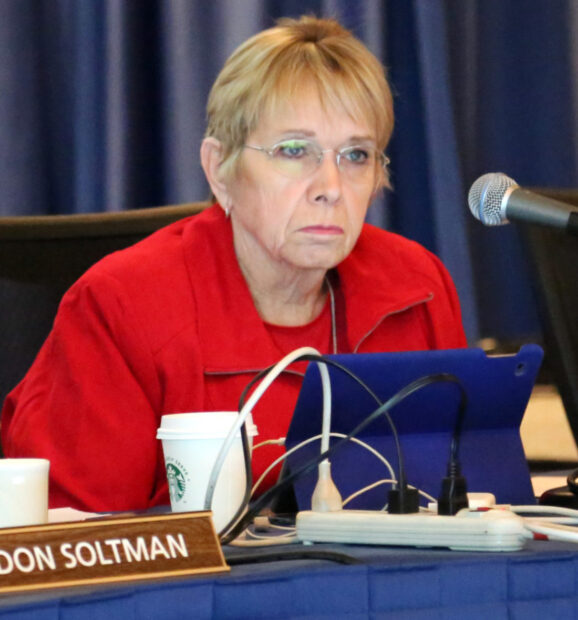The State Board of Education will ask for $34 million in federal coronavirus relief funding to help support developing a blended learning environment amid uncertainty over the coronavirus pandemic.
During an eight-hour meeting Wednesday, the State Board voted to send its recommendations to Gov. Brad Little’s Coronavirus Financial Advisory Committee, which decides how to distribute Idaho’s share of federal CARES Act funding.
The State Board will ask for $30 million to purchase devices for K-12 students and improve internet connectivity. It will request another $4 million to create an online higher education campus designed to allow students in remote areas to take college courses online.
Much of the debate over CARES Act funding had to do with where and how to invest the money.
Although parents and educators want schools to reopen in the fall in a traditional manner, because of uncertainties surrounding the virus, the State Board is preparing for a blended learning model that incorporates both a traditional classroom education and an online distance learning program.
“From my perspective, the most important thing we can do is to get schools open in the fall,” Board Member Kurt Liebich said. “The second thing we need to do is to position districts to be able to deliver a blended learning solution more effectively than they were forced to do this past spring. Each of these investments are supporting districts to be able to better deliver blended learning this fall.”
Standards, testing and certification
Although the legislative session has been adjourned for nearly three months, the House Education Committee’s influence loomed large over Wednesday’s State Board meeting.
The State Board took initial steps to resolve differences with the Legislature in three areas.
- It voted to approve a “technical correction” to the state’s science standards that removed all supporting content but did not touch the standards themselves. Academic standards, including science standards, have been a source of controversy at the Statehouse over the past five years.
- It received a briefing on the first phase of the State Department of Education’s effort to revise Idaho’s teacher certification standards. Earlier this year, the House Education Committee voted to repeal certification standards before the Senate Education Committee overruled it.
- It conducted initial discussions during a work session about changing the high school assessment test from the Idaho Standards Achievement Test to a college entrance exam. This year the Legislature passed Senate Concurrent Resolution 120, which urged the State Board and SDE to work together to stop administering the ISAT in 10th grade and replace it. The State Board also debated jettisoning the senior math requirement and discussed graduation requirements.
Several of the discussions are ongoing and will continue throughout the end of the year.
But the move clearly represents an effort by the State Board to address some of the Legislature’s concerns.
In 2018 House Education attempted to remove all supporting content from the science standards, before it was overruled by the Senate Education Committee. Then, this year, House Education attempted to repeal all academic standards in science, English and math.
“This is to help minimize some of that controversy and take some of the focus away from things that are there to support, as resources for teachers, but are not the actual standards,” State Board president Debbie Critchfield said. “This is the right move for us.”
Ybarra said the supporting content will be removed from the standards but will still be available for educators to use as examples.
“It was sending the message that we are getting down into the weeds with curriculum and driving instruction in the classroom, so people didn’t understand supporting content was just that,” Ybarra said.
Contract extensions
The State Board also unanimously approved three-year contract extensions for Lewis-Clark State College President Cynthia Pemberton and Idaho State University President Kevin Satterlee. In recognition of state budget holdbacks, the presidents will not receive pay increases next year.
Atchley won’t seek reappointment

Longtime State Board member and past president Emma Atchley will not seek reappointment when her term expires at the end of this month.
Atchley, of Ashton, has served two full terms on the board, executive director Matt Freeman said, noting that time commitment to volunteer with the State Board is not for the faint of heart.
The end of Atchley’s appointment will create an opening for Gov. Brad Little to fill on the eight-member board.
Depending on how quickly Little acts, Atchley may have participated in her final regular meeting. Often, the State Board takes July off.
